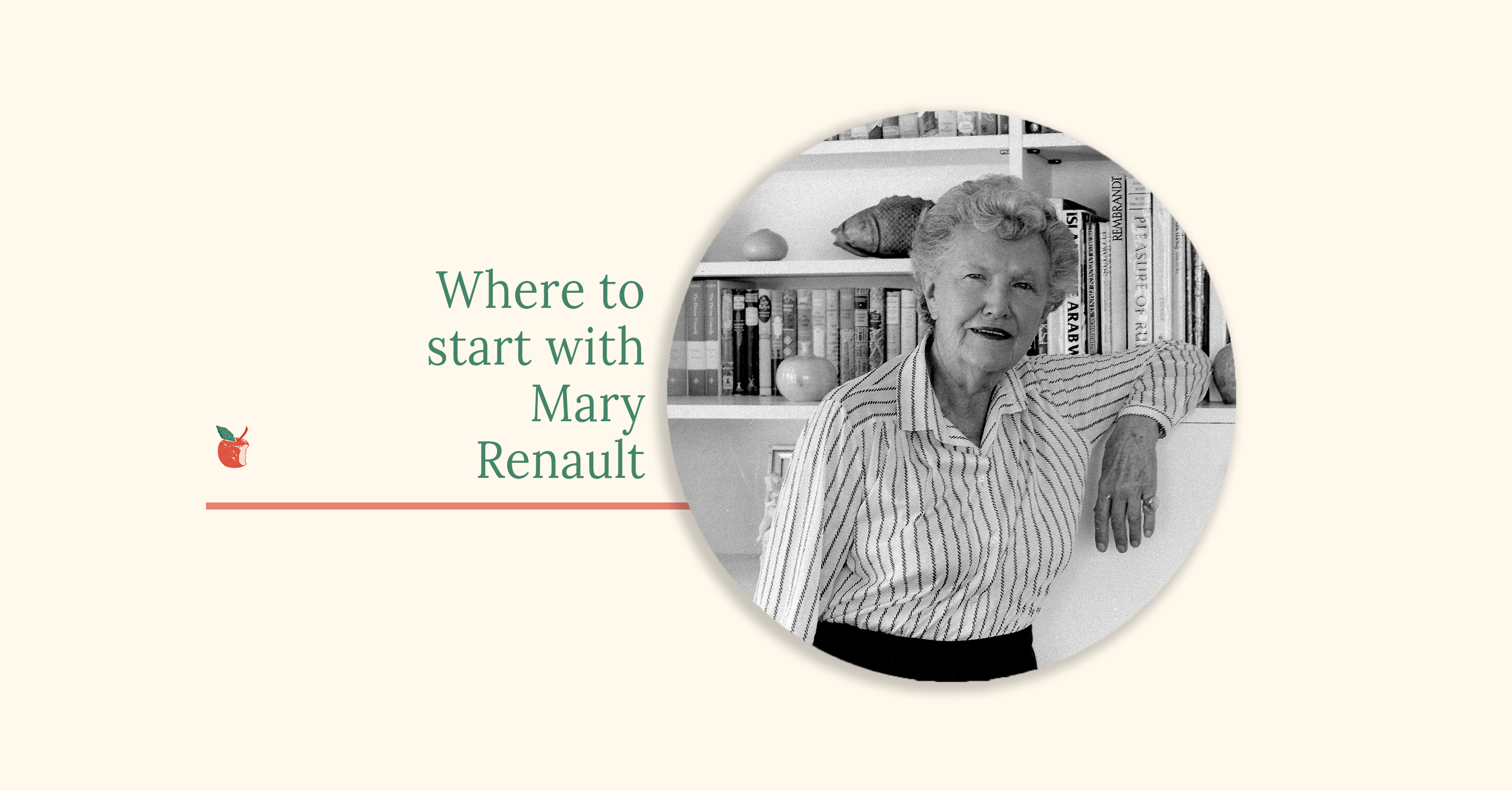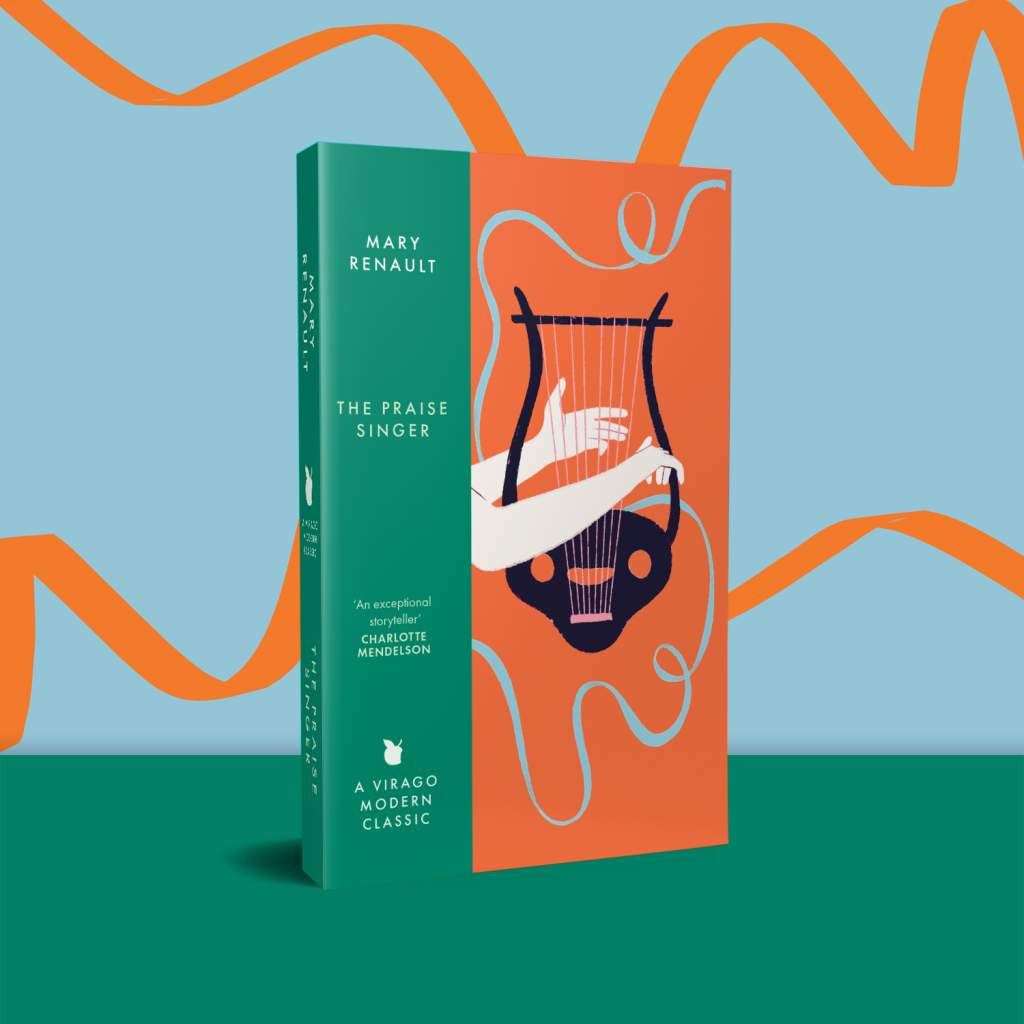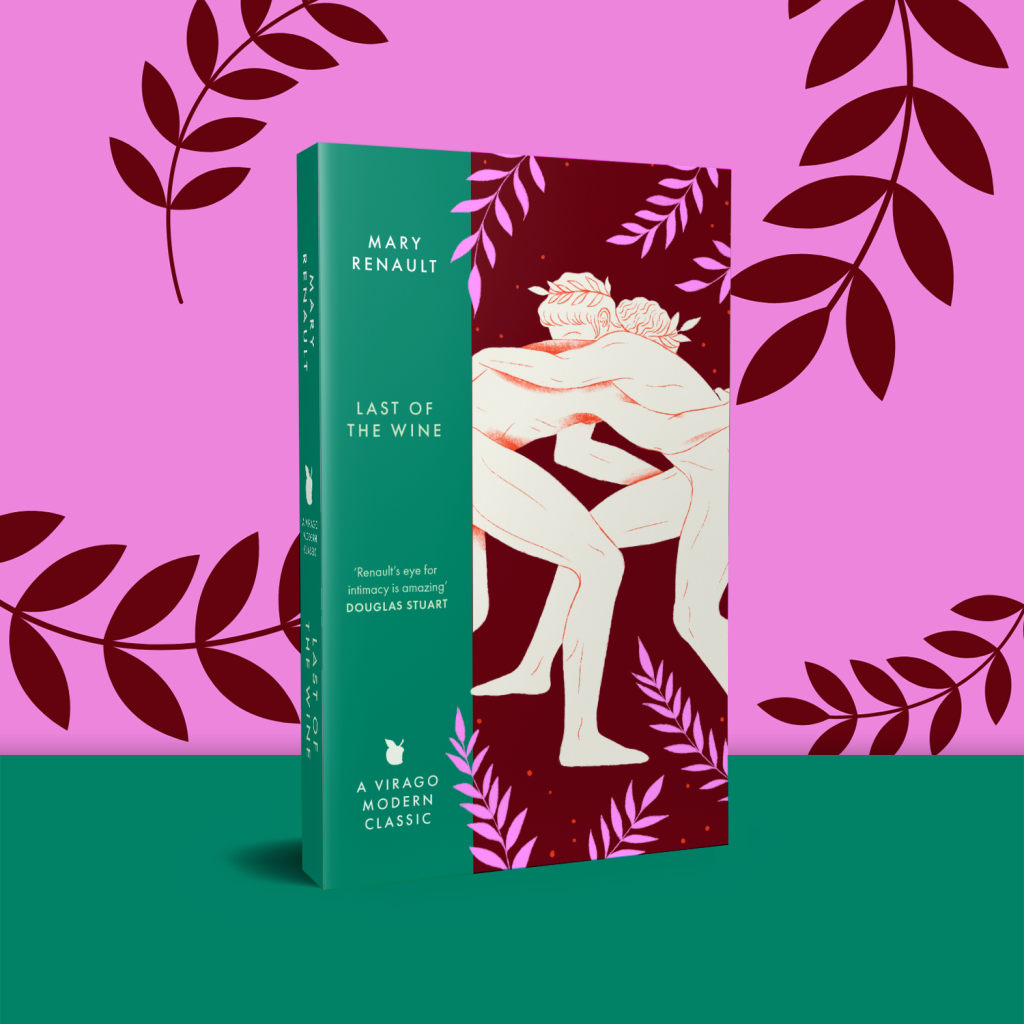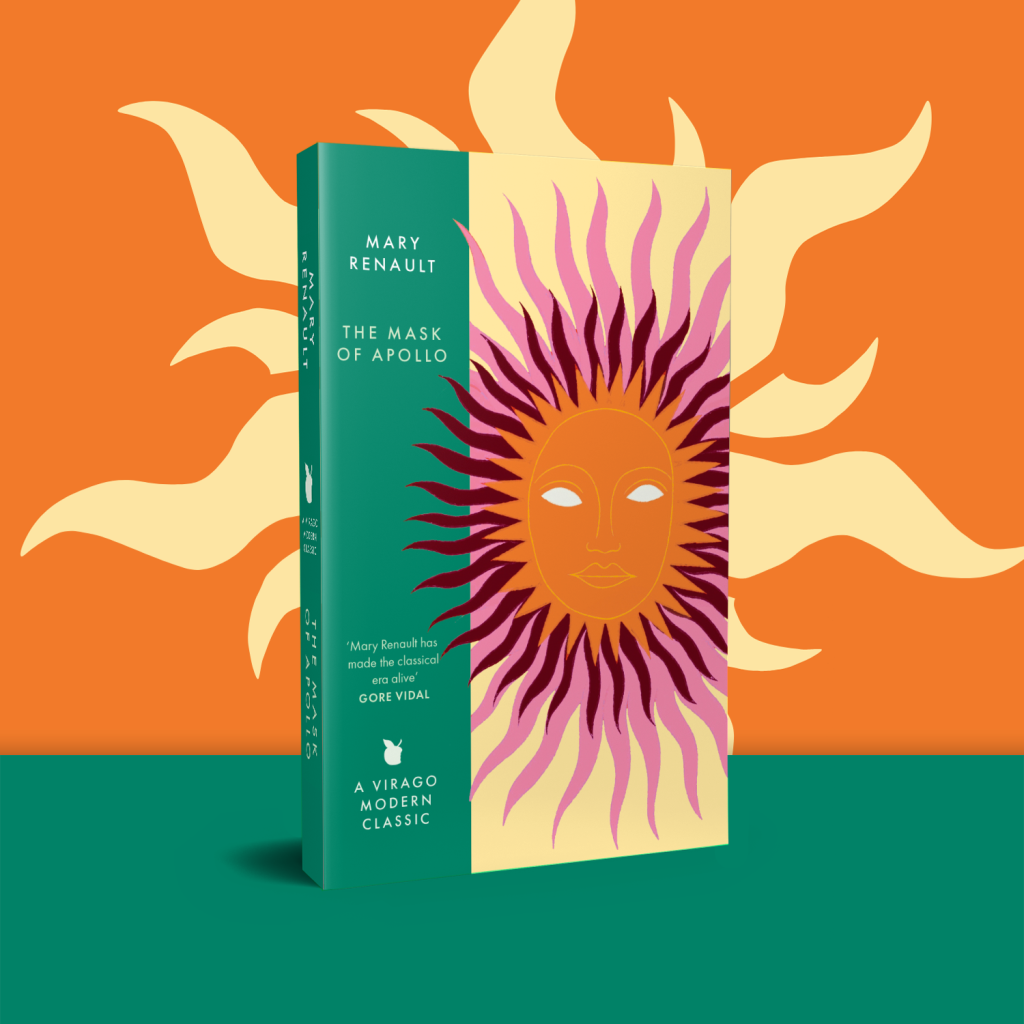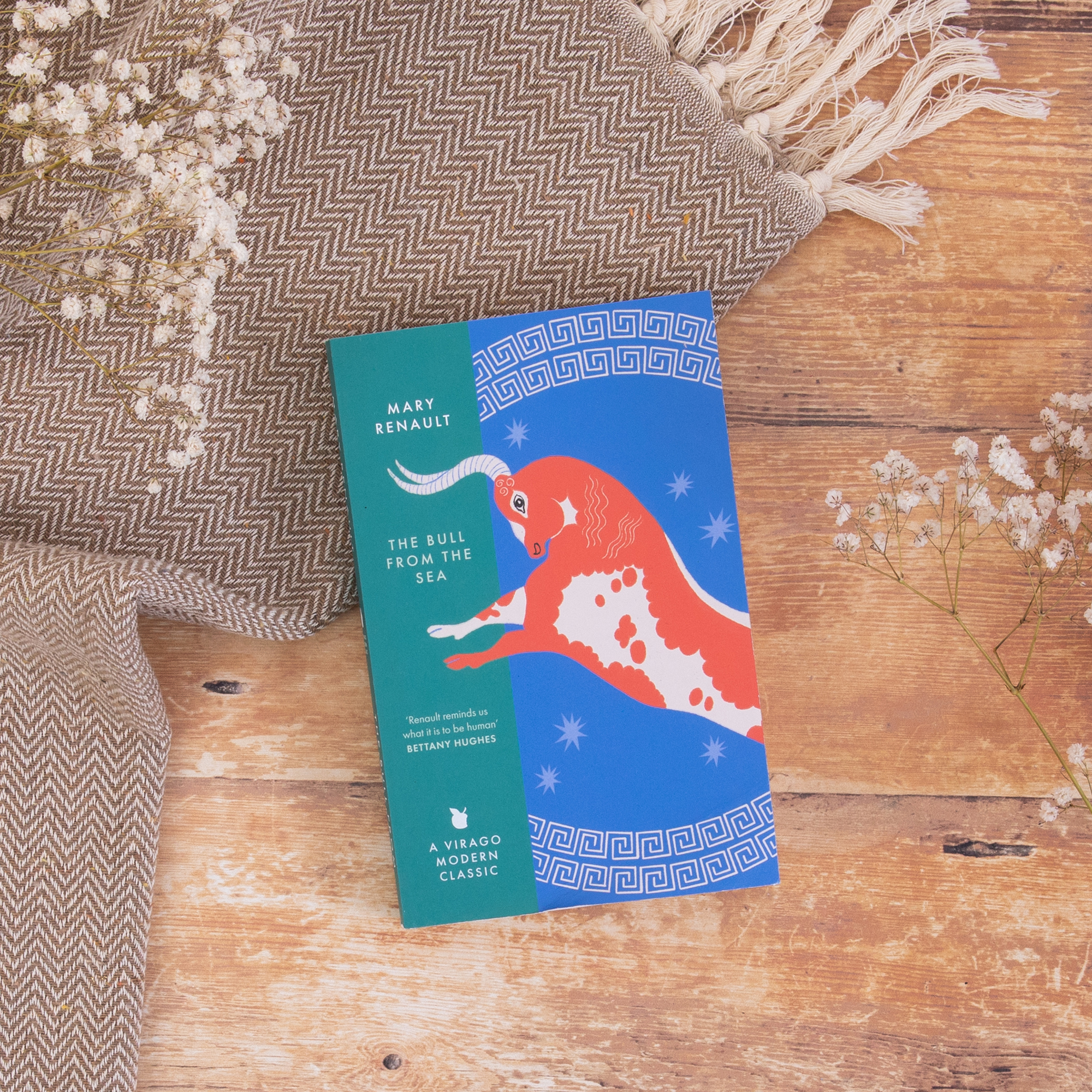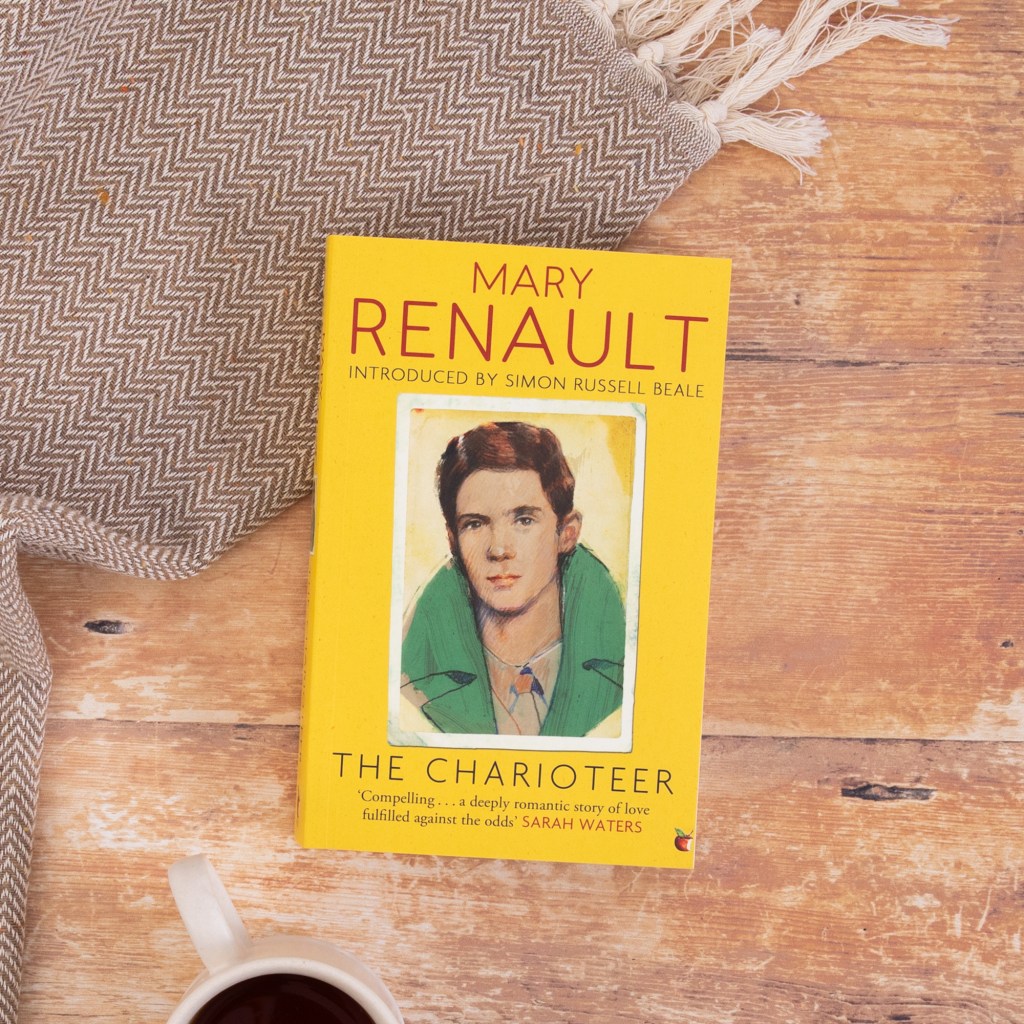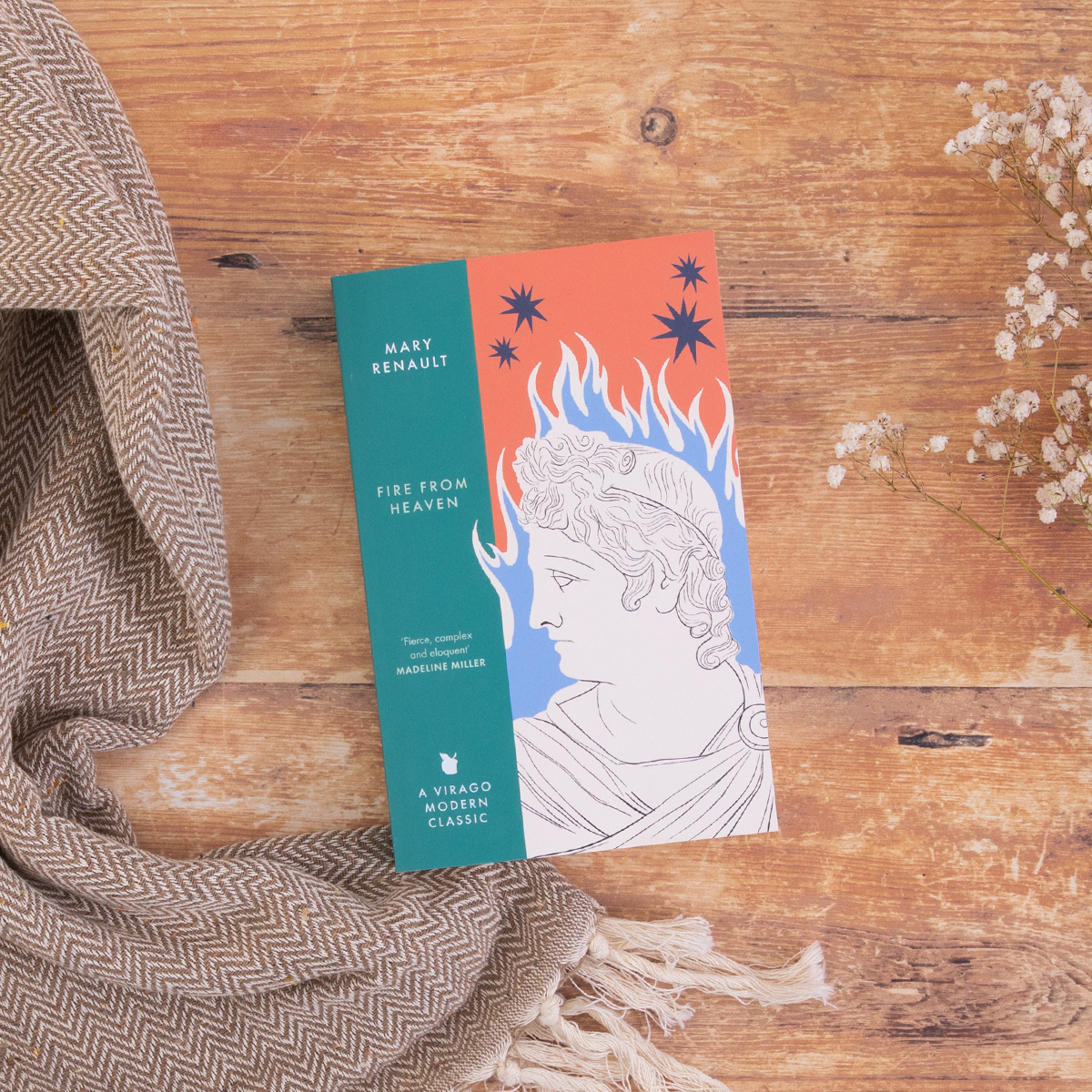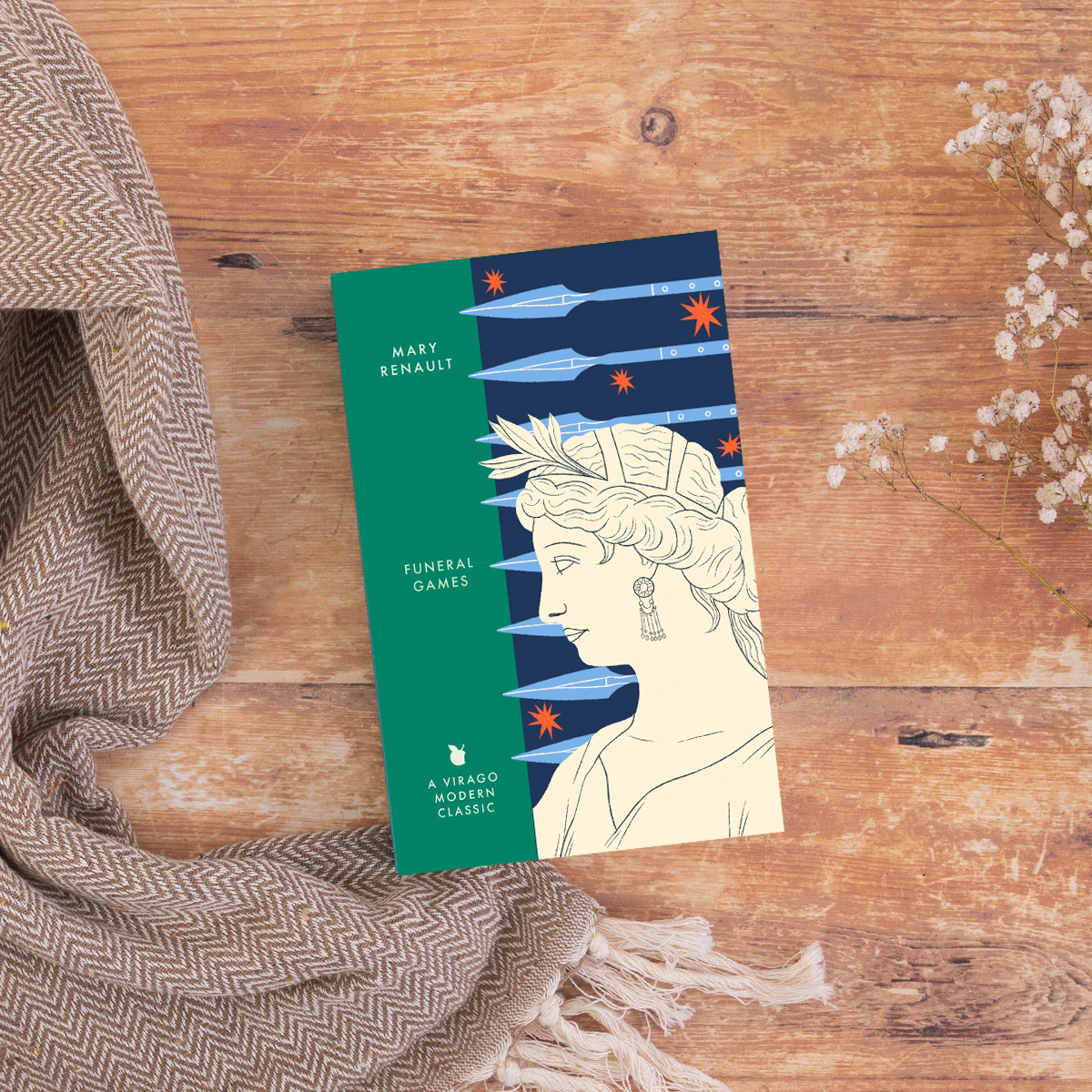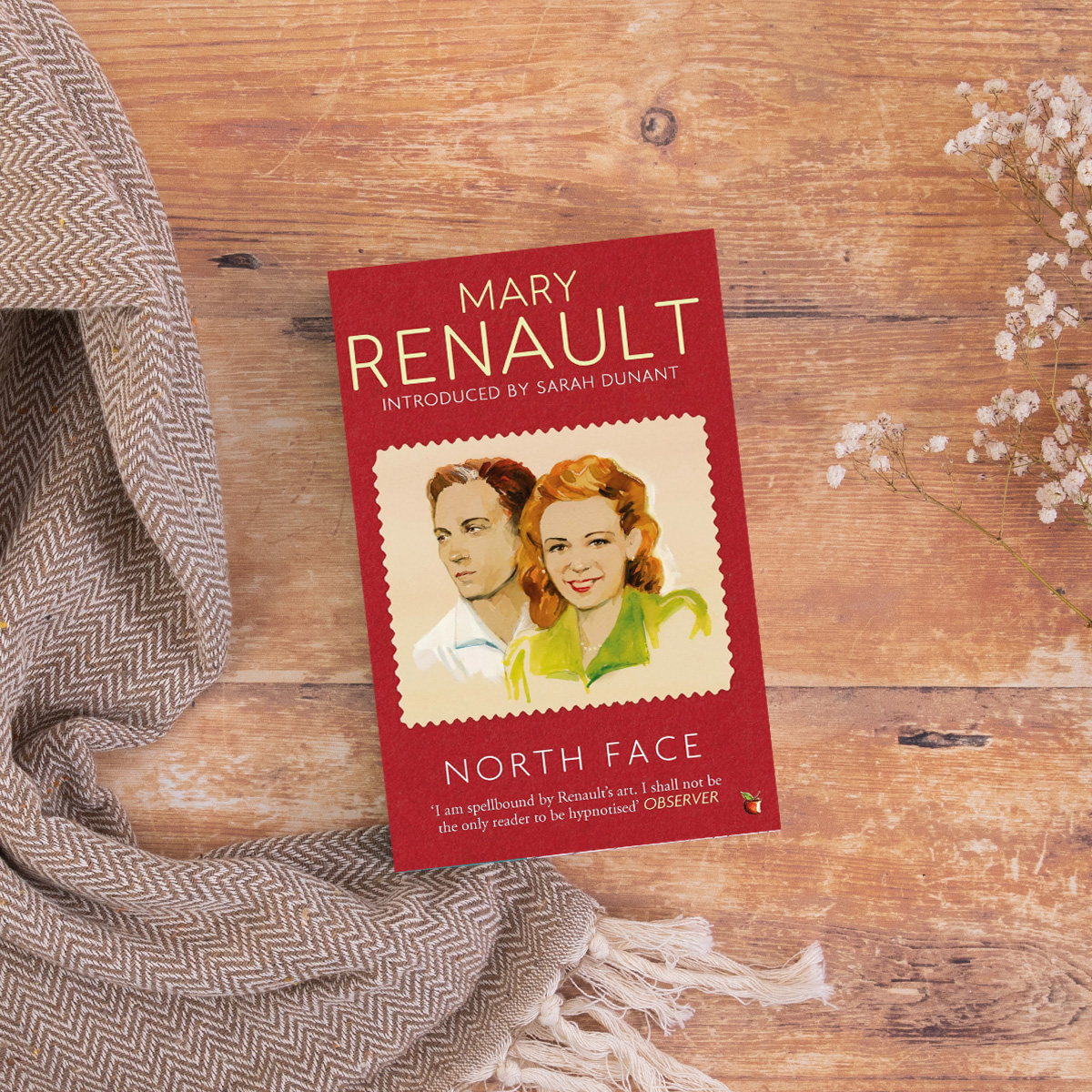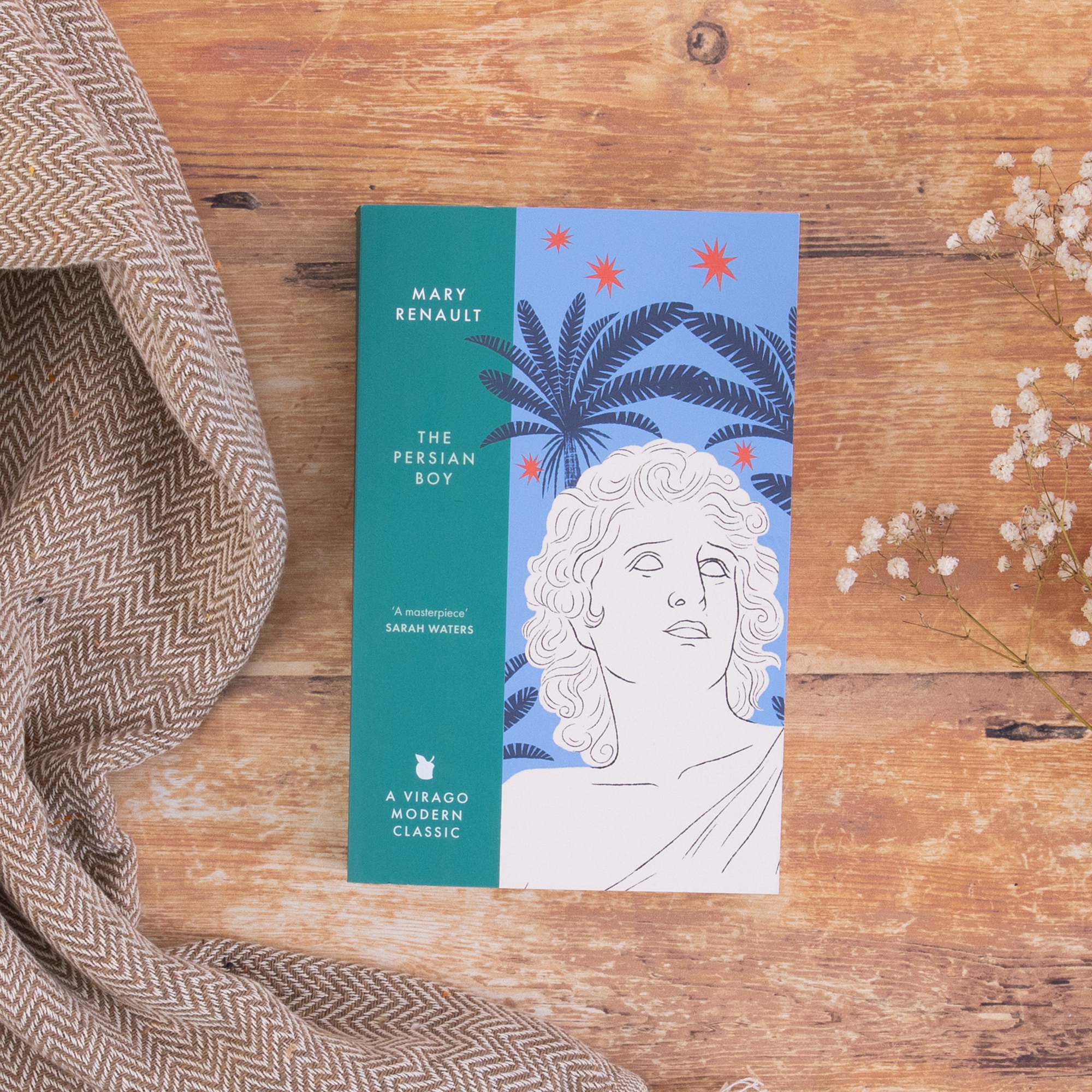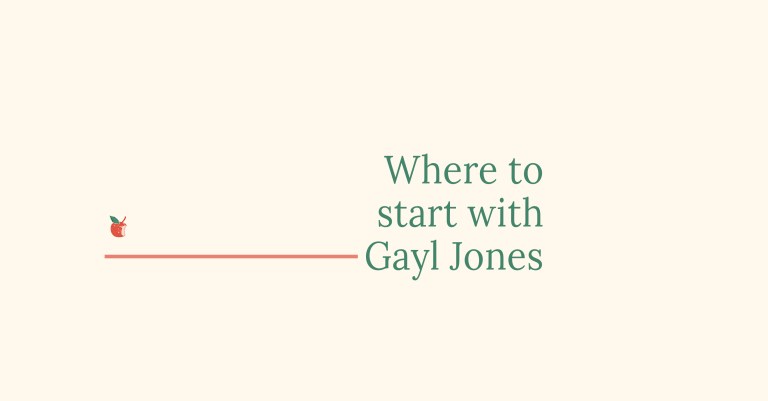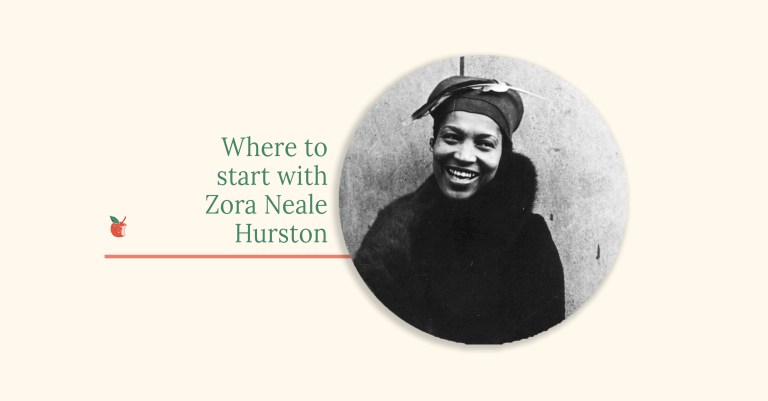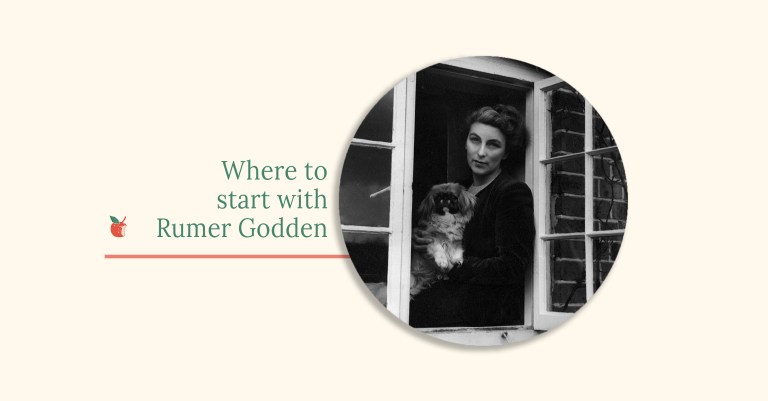Where to Start With Mary Renault
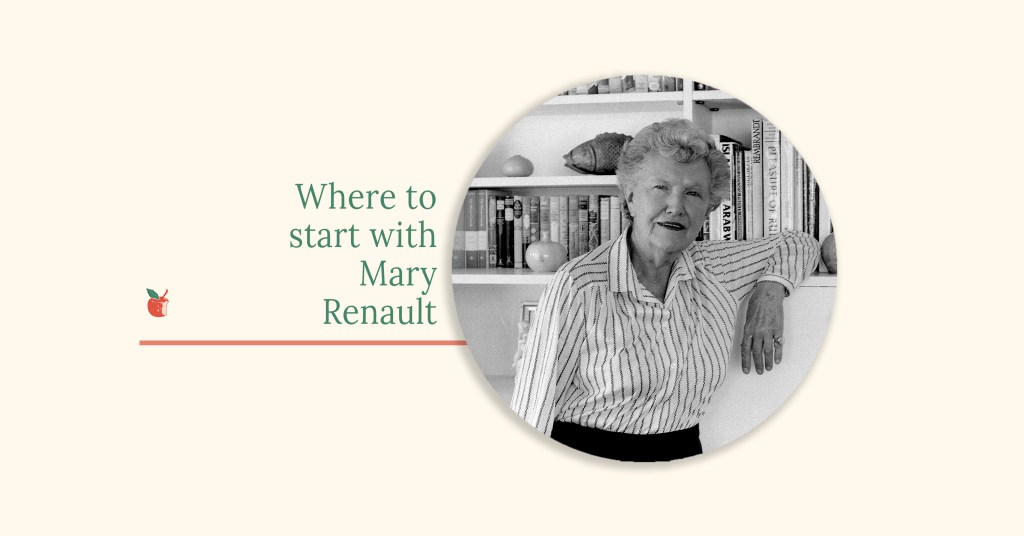
Eileen Mary Challans (4 September 1905 – 13 December 1983), is better known by her pen name Mary Renault.
Renault wrote her first novels – beginning with Purposes of Love, a hospital romance about a bisexual love triangle – as she worked as a nurse. In 1948, having won the $150,000 MGM Prize, she moved to South Africa with her partner, Julie Mullard, where she spent the rest of her life. Living in South Africa allowed her to write about openly gay characters without fearing the censorship and homophobia of England. Her books attracted a large gay following at the time of their publication, when few mainstream works depicted homosexuality in a positive light.
‘An important and wonderful writer’ Sam Jordison, Guardian
The Charioteer (1953), the last and most groundbreaking of Renault’c contemporary love stories, tells the story of two young gay servicemen in the 1940s. A landmark work of gay literature, it echoed themes which Challans later revisited with her historical novels.
Between 1956 and 1981, Renault turned to historical fiction, drawing on her love of Ancient Greece. Written in her mid-fifties, Renault’s first foray into historical fiction was The Last of the Wine. The novel was her greatest financial and critical success to date, and she followed it with eight additional historical novels, including her beloved trilogy reimagining the life of Alexander the Great.
‘Mary Renault is a shining light’ Hilary Mantel
She received numerous awards and honours, both during her lifetime and posthumously.

MARY RENAULT READING GUIDE
Read on for a guide to the fourteen novels by Mary Renault that Virago publish.
THE PRAISE SINGER
In the story of the great lyric poet Simonides, Mary Renault brings alive a time in Greece when tyrants kept an unsteady rule and poetry, music, and royal patronage combined to produce a flowering of the arts. First published in 1978, The Praise Singer is a vibrant novel. Its narrator and main character is the real-life lyric poet Simonides of Ceos, whose life (ca. 556 BC-469 BCE) spanned the transition from an oral to a written culture in Ancient Greece.
Born into a stern farming family on the island of Keos, Simonides escapes his harsh childhood through a lucky apprenticeship with a renowned Ionian singer. As they travel through 5th century B.C. Greece, Simonides learns not only how to play the kithara and compose poetry, but also how to navigate the shifting alliances surrounding his rich patrons. He is witness to the Persian invasion of Ionia, to the decadent reign of the Samian pirate king Polykrates, and to the fall of the Pisistratids in the Athenian court. Along the way, he encounters artists, statesmen, athletes, thinkers, and lovers, including the likes of Pythagoras and Aischylos. Using the singer’s unique perspective, Renault combines her vibrant imagination and her formidable knowledge of history to establish a sweeping, resilient vision of a golden century.
THE LAST OF THE WINE
Combining the scholarship of a historian with the imagination of a novelist, Mary Renault masterfully brings the ancient world to life in this page-turning drama of the Peloponnesian War. The Last of the Wine was originally published in 1956 and was the second of her works to feature male homosexuality as a major theme.
‘The most vivid and convincing reconstruction of ancient Greek life that I have ever seen’ Sunday Times
‘All my sense of the ancient world – its values, its style, the scent of its wars and passions – comes from Mary Renault’ Emma Donoghue
The Last of the Wine engages the mores and culture of Classical Greece, including symposia (drinking parties), the treatment of women, the importance of athletic, military and philosophical training among young men, marriage customs and daily life in war and peace.
THE MASK OF APOLLO
Combining the scholarship of a historian with the imagination of a novelist, Mary Renault brings the ancient Greek stage thrillingly to life.
‘There’s much to wonder at in the way she fills in the large dark spaces where we know next to nothing about the times she describes’ Sam Jordison, Guardian
Set in fourth-century B.C. Greece, The Mask of Apollo is narrated by Nikeratos, a tragic actor who takes with him on all his travels a gold mask of Apollo, a relic of the theatre’s golden age, which is now past. At first his mascot, the mask gradually becomes his conscience, and he refers to it his gravest decisions, when he finds himself at the centre of a political crisis in which the philosopher Plato is also involved. Much of the action is set in Syracuse, where Plato’s friend Dion is trying to persuade the young tyrant Dionysios the Younger to accept the rule of law. Through Nikeratos’ eyes, the reader watches as the clash between the two unleashes all the pent-up violence in the city.
THE BULL FROM THE SEA
A Novel of Alexander the Great
The sequel to The King Must Die. The Bull from the Sea continues the story of the hero Theseus after his return from Crete. The Bull from the Sea was first published in 1962.
‘Mary Renault’s portraits of the ancient world are fierce, complex and eloquent’ Madeline Miller
Having freed the city of Athens from the terrible tribute demanded by the ruler of Knossos – the sacrifice of noble youths and maidens to the appetite of the Labyrinth’s monster – Theseus has returned home to find his father dead and himself the new king. But his adventures have only just begun: he still must confront the Amazons, capture their queen, Hippolyta, and face the tragic results of Phaedra’s jealous rage.
Piecing together fragments of myth and ancient history, this thrilling retelling of the legend of Theseus brings to life a world in which heroes battled monsters and gods strode the earth.
‘An important and wonderful writer . . . she set a course into serious-minded, psychologically intense historical fiction that today seems more important than ever’ Sam Jordison, Guardian
THE CHARIOTEER
First published in 1953, The Charioteer is a tender, intelligent coming-of-age novel and a bold, unapologetic portrayal of homosexuality that stands with Gore Vidal’s The City and the Pillar and James Baldwin’s Giovanni’s Room as a landmark work in gay literature.
‘An explosive and courageous book’ Simon Russell Beale
Injured at Dunkirk, Laurie Odell, a young corporal, is recovering at a rural veterans’ hospital. There he meets Andrew, a conscientious objector serving as an orderly, and the men find solace in their covert friendship. Then Ralph Lanyon appears, a mentor from Laurie’s schooldays. Through him, Laurie is drawn into a tight-knit circle of gay men for whom liaisons are fleeting and he is forced to choose between the ideals of a perfect friendship and the pleasures of experience.
‘Emotionally intelligent, beautifully written and deeply moving, it transcends categorisations’ Telegraph
The Charioteer is significant because it features a gay protagonist and romantic story with a happy ending, the first book traditionally published in England to do so. It quickly became a bestseller – particularly within the gay community and remains a cult classic.
‘The Charioteer remains compelling both as a snapshot of a particular – and particularly fascinating – cultural moment, and as a deeply romantic story of love fulfilled against the odds. It has all those qualities that make Mary Renault so memorable as a novelist: craft, subtlety, intelligence, and a terrific natural sympathy with the intricacies of honour and desire’ Sarah Waters
FIRE FROM HEAVEN
A Novel of Alexander the Great
In the first novel of her stunning trilogy, Mary Renault vividly imagines the life of Alexander the Great, the charismatic leader whose drive and ambition created a legend.
‘The Alexander Trilogy contains some of Renault’s finest writing. Lyrical, wise, compelling: the novels are a wonderful imaginative feat’ Sarah Waters
‘The Alexandriad is one of the twentieth century’s most unexpectedly original works of art’ Gore Vidal
‘This is not just a novel: it’s also the best imagining we are ever likely to have of a man who tore up history’ Emily Wilson, Guardian
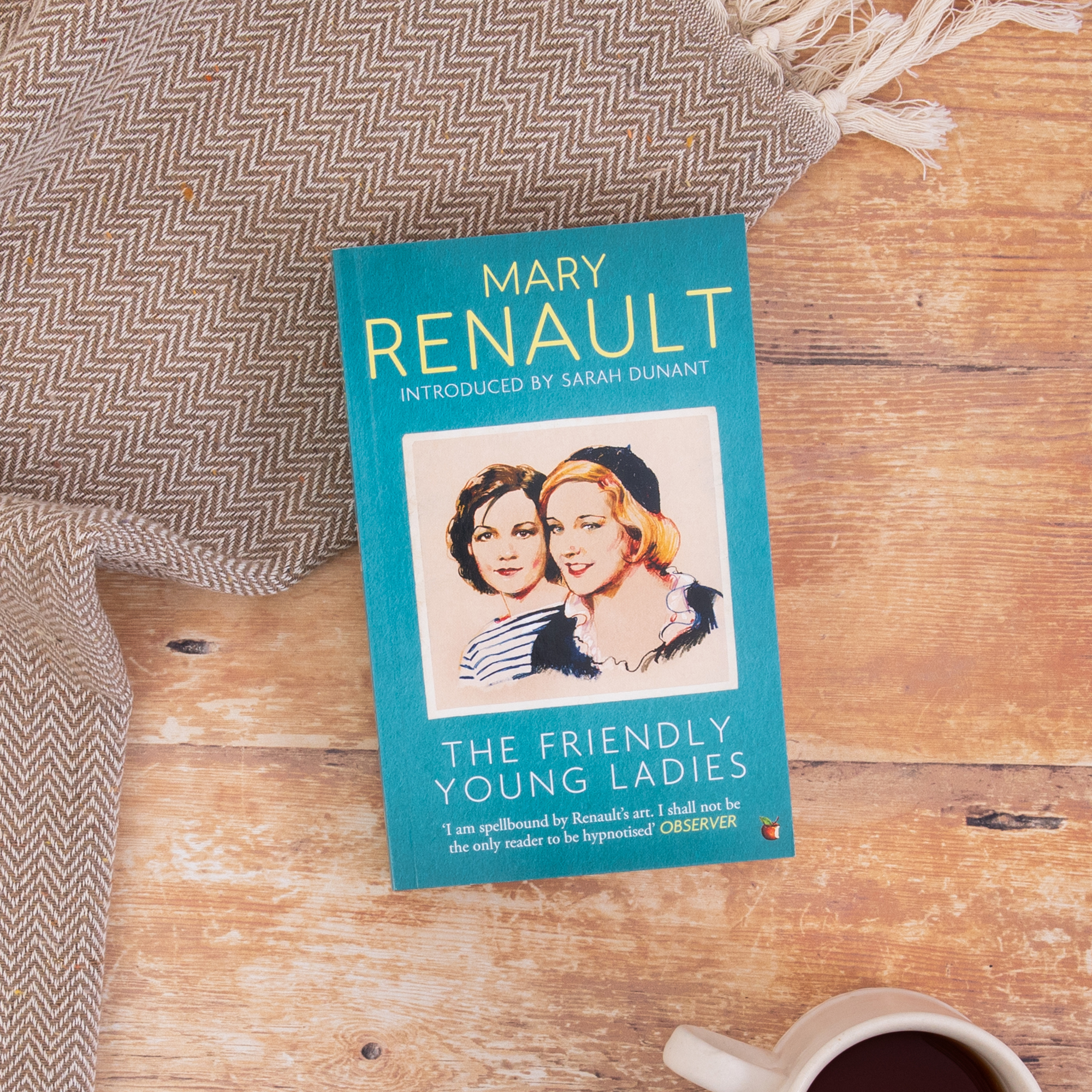
THE FRIENDLY YOUNG LADIES
Mary Renault wrote this delightfully provocative novel in 1943 partly in answer to the despair characteristic of Radclyffe Hall’s The Well of Loneliness. The result is this witty and stylish social comedy.
FUNERAL GAMES
A Novel of Alexander the Great
In the final novel of her stunning trilogy, Mary Renault vividly imagines the life of Alexander the Great, the charismatic leader whose drive and ambition created a legend. First published in 1981.
‘Mary Renault is a shining light to both historical novelists and their readers’ Hilary Mantel
Alexander the Great died at the age of thirty-three, leaving behind an empire that stretched from Greece and Egypt to India.
After Alexander’s death in 323 B.C. his only direct heirs were two unborn sons and a simpleton half-brother. Every long-simmering faction exploded into the vacuum of power. Wives, distant relatives and generals all vied for the loyalty of the increasingly undisciplined Macedonian army. Most failed and were killed in the attempt. For no one possessed the leadership to keep the great empire from crumbling. But Alexander’s legend endured to spread into worlds he had seen only in dreams.
‘The Alexander Trilogy stands as one of the most important works of fiction in the 20th century . . . Renault’s skill is in immersing us in their world, drawing us into its strangeness, its violence and beauty’ Antonia Senior, The Times
KIND ARE HER ANSWERS
Kit Anderson is married to Janet, a beautiful but narcissistic woman who seems more shallow to him as time goes by. Their relationship has become strained and cold. Immersing himself in his work as a doctor, Anderson takes consolation in his career. Then, one night he is called out to a dying patient, and meets Christie, who is taking care of her aunt. Warm and vivacious, Christie stands in stark contrast to Janet, providing the passion and intimacy that has been missing from his life.
How long can their affair be kept secret and does Kit want what is best for Christie, or only for himself? In this assured, vivid novel, Mary Renault showcases the talents that would make her one of the twentieth century’s most beloved novelists.
Kind Are Her Answers was originally published in 1940.
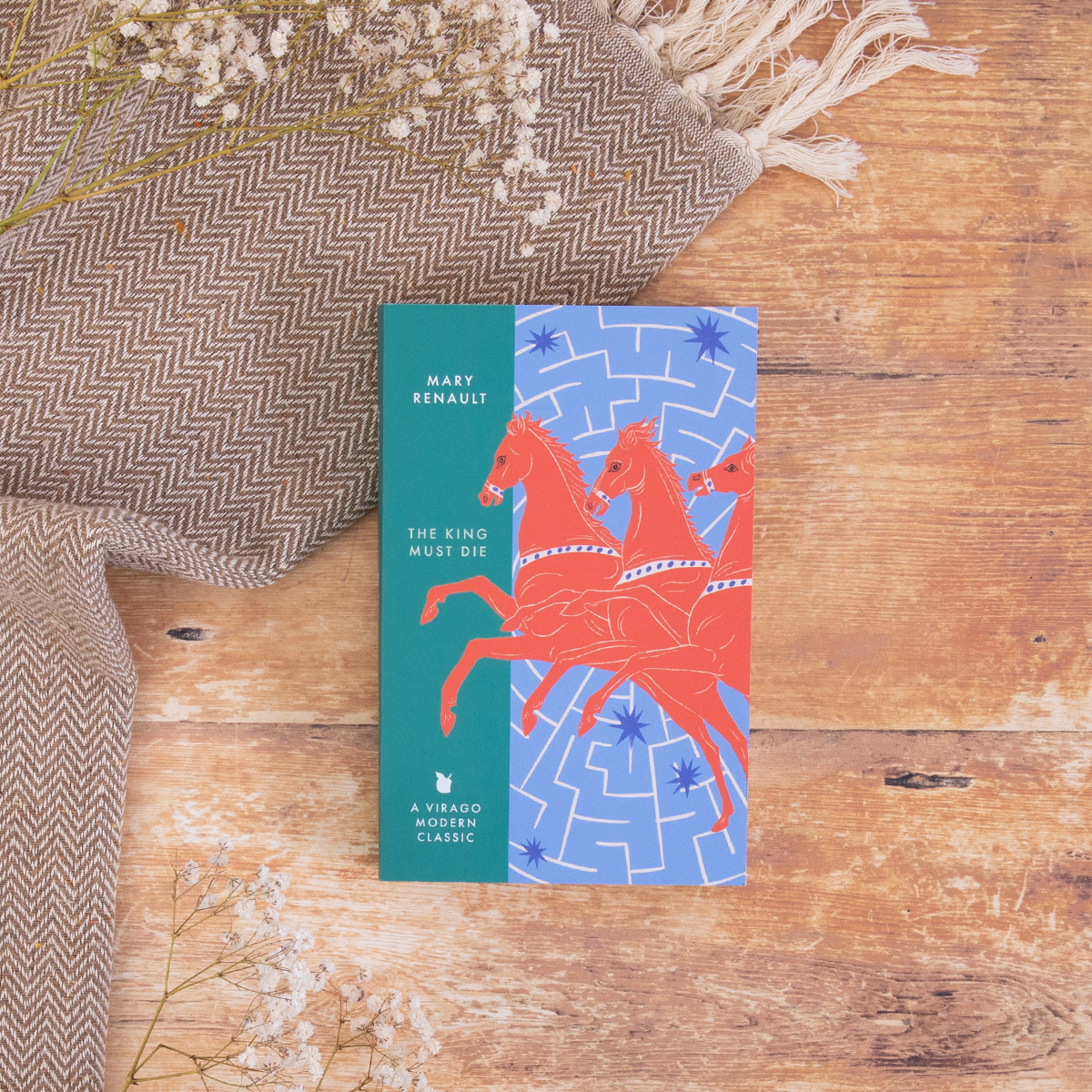
THE KING MUST DIE
Thrilling, immersive and gorgeously told, Mary Renault’s classic novel is a unforgettable reimagining of the timeless Greek myth.
‘This brilliant retelling of the story of Theseus, the king of Athens, brings Greek mythology vividly to life and remains “one of the truly fine historical novels of modern times”‘ New York Times
The true parentage of Theseus, grandson of the King of Troizon, has always been shrouded in mystery. Rumours swirl that his father is Poseidon himself. But when he learns the truth – that he is the son and heir of Aegeus, King of Athens – Theseus sets out on a quest to claim his birthright.
But his journey is a perilous one, from encounters with bandits to marriage to the Queen of Eleusis, whose consort is sacrificed each year – and, finally, to the labyrinthine palace of King Minos on Crete. There Thesues must enlist the help of high priestess Ariadne in a darling plan to slay the Minatour – and free his people.
First published in 1958, the book was lauded by critics, with Renault’s believable historical setting being particularly well-received.
Suzanne Collins credited The King Must Die as one inspiration for The Hunger Games, with the concept of boys and girls taken by lottery to perform in a deadly competition for the elites’ entertainment.
NORTH FACE
The North Face was first published in 1948. The protagonists are Neil Langton and Ellen Shorland, both of whom have tragic pasts and both of whom are staying at a boarding house in Cornwall. The novel is set in the period immediately after the end of World War II.
THE PERSIAN BOY
‘One of the greatest historical novels ever written’ Sarah Waters
A groundbreaking queer classic and powerful reimagining of the last years of Alexander the Great, told through the eyes of his lover.
Originally published 23 October 1972, The Persian Boy is a sequel to Fire from Heaven (1969).
‘I love to find queer representation in historical fiction . . . Renault’s eye for intimacy is amazing‘ Douglas Stuart
I thought, There goes my lord, whom I was born to follow. I have found a king.
And, I said to myself, looking after him as he walked away, I will have him, if I die for it.
‘Fierce, complex and eloquent’ Madeline Miller
Bagoas, abducted as a boy and sold as a eunuch, has been transported to the heart of the Persian court as courtesan to King Darius. But when the Macedon army conquers his homeland, Bagoas finds freedom at the hands of their golden young commander, whose name is already becoming a legend: Alexander.
Their encounter sparks a passionate devotion that shapes the Persian boy’s future – and deepens into a relationship that will sustain them both through assassination plots, political intrigue and the threat of Alexander’s own restless ambition. This is a spellbinding tale of power, loyalty and loss – a vision of history transfigured by love.
PURPOSES OF LOVE
First published in 1939, Purposes of Love was Renault’s debut novel.
Vivian, a student nurse, chose her profession as a challenge, both to her spirit and to her permanently exhausted body; Mic immerses himself in his work at the hospital to ward off the emotional wounds of an unhappy childhood. Through Jan, Viv’s beloved older brother, they meet, and their friendship turns into a secret romance. Secret because, if discovered, it would cost them their jobs.
Despite the discipline and rigid hierarchy imposed by the hospital, their passion takes root, but between them hangs the tantalising and enigmatic shadow of Jan.
RETURN TO NIGHT

